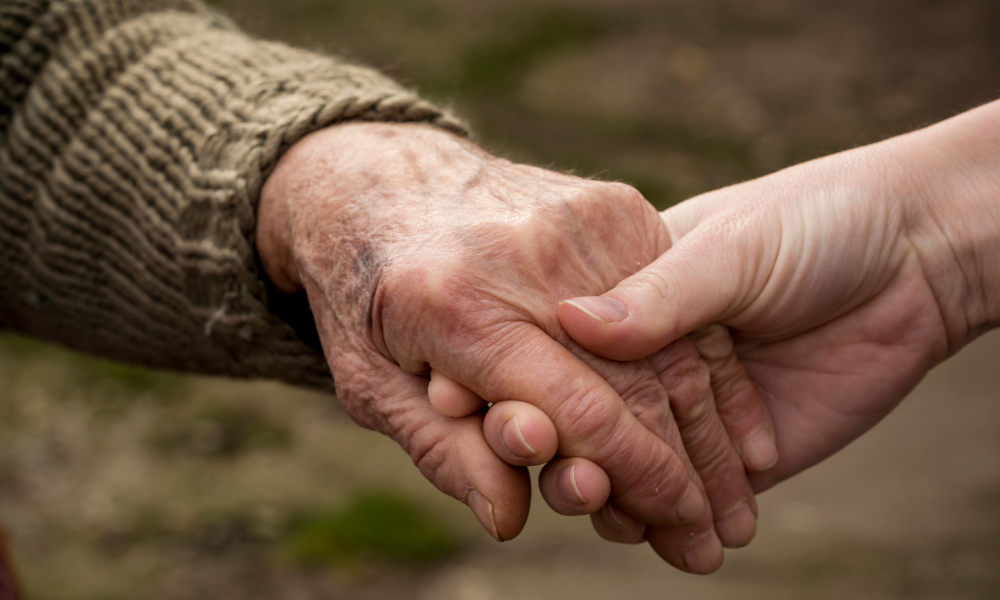A binding decision mandates science-based measures to mitigate climate change fallout

Climate lawyers say the era of vague net zero pledges is over as a new European court ruling has put governments everywhere on notice.
In an April 9 decision, the European Court of Human Rights sided with a group of elderly women from Switzerland who said their government violated their rights by contributing to climate change, which in turn exacerbated heat waves that ended up threatening their health.
The decision is binding and makes clear that all 46 countries that are party to the ECHR — spanning Turkey to Azerbaijan — must ensure they’re taking science-based measures to mitigate the current and future fallout of climate change.
Matt Dodd, litigation, arbitration and investigations managing associate at Linklaters in London, points out that the court’s ruling sets out relatively detailed expectations for how national regulatory frameworks need to be shaped to live up to this expectation.
And climate nonprofits “will want to test the boundaries of those expectations,” he said.
Sonali Siriwardena, a London-based partner and global head of ESG at London-based law firm Simmons & Simmons, says the ruling was “ground-breaking by directly linking government action on climate change to human rights obligations.”
That framing opens “a floodgate of potential litigation against national governments,” she said.
Dodd singled out the UK, whose current government has continually questioned the country’s relationship to the ECHR since its split with the European Union.
The court’s decision now opens the door to “domestic challenges to the UK’s net zero strategy,” he said.
The UK has already been successfully targeted in a similar case by ClientEarth, and in spite of Brexit the scope of this week’s ruling means the country can still be the subject of litigation.
That’s because the ECHR has established key building blocks that other courts – both national and international – are likely to use in climate change cases in the future, according to Nicolas J.S. Lockhart, a Geneva-based partner focused on environmental, global arbitration and trade as well as advocacy cases at Sidley Austin LLP.
“The consequences of this decision will be felt in the United Kingdom,” Dodd said.
Political Realities
However, not everyone is expecting the ECHR ruling to force change on its own. Instead, it’s likely to be just one of several factors that governments need to weigh as they calibrate their response to climate change, according to Robert N. Stavins, director for the Harvard Project on Climate Agreements.
Countries that have signed on to the Paris Agreement come to annual negotiations “knowing what is politically achievable and desirable within their own jurisdictions,” Stavins said.
The basic reasoning used by the ECHR sets a roadmap for plaintiffs across the globe. In essence, it accepts that human activity has already caused climate change, that climate change has caused — and will continue to cause — adverse impacts, that these adverse effects will worsen as temperatures rise to 1.5C and beyond, and that the adverse effects of climate change threaten human rights for present and future generations, Lockhart said.
Switzerland didn’t meet the ECHR’s threshold for adequate climate action because it hasn’t established a carbon budget, nor has it taken concrete measures to meet its long-term net zero target or set intermediate targets for 2025-2030, Lockhart said. “It is fair to say that many other countries’ efforts to tackle climate change likely also do not meet the court’s requirements,” he said.
The ECHR “adapted its legal approach to meet the unique features of climate change,” he added. “Many other courts are likely to follow suit, especially in Europe.”
For now, Switzerland is required to amend its national legislation to ensure that climate policies are based on science, and in line with the government’s stated goal of achieving net zero emissions by 2050. Switzerland must also cover costs related to the case of roughly €80,000 ($85,400).
While judgments finding violations are binding on the states concerned, the ECHR doesn’t enforce its rulings. Instead, the Committee of Ministers of the Council of Europe, which is made up foreign ministers from member states, monitors the execution of judgments.
A spokesperson for the Swiss government said the environment and justice ministries are currently analyzing the ruling and declined to comment further.
Climate nonprofits are also digesting the full implications of the ruling. But it’s already clear they now have a lot more to work with.
“We’re still processing the judgment,” said Sophie Marjanac, ClientEarth senior lawyer and head of its corporate accountability team. “There’s a huge amount of material guidance in there and it will set the standard for human rights, climate change litigation across Europe.”










